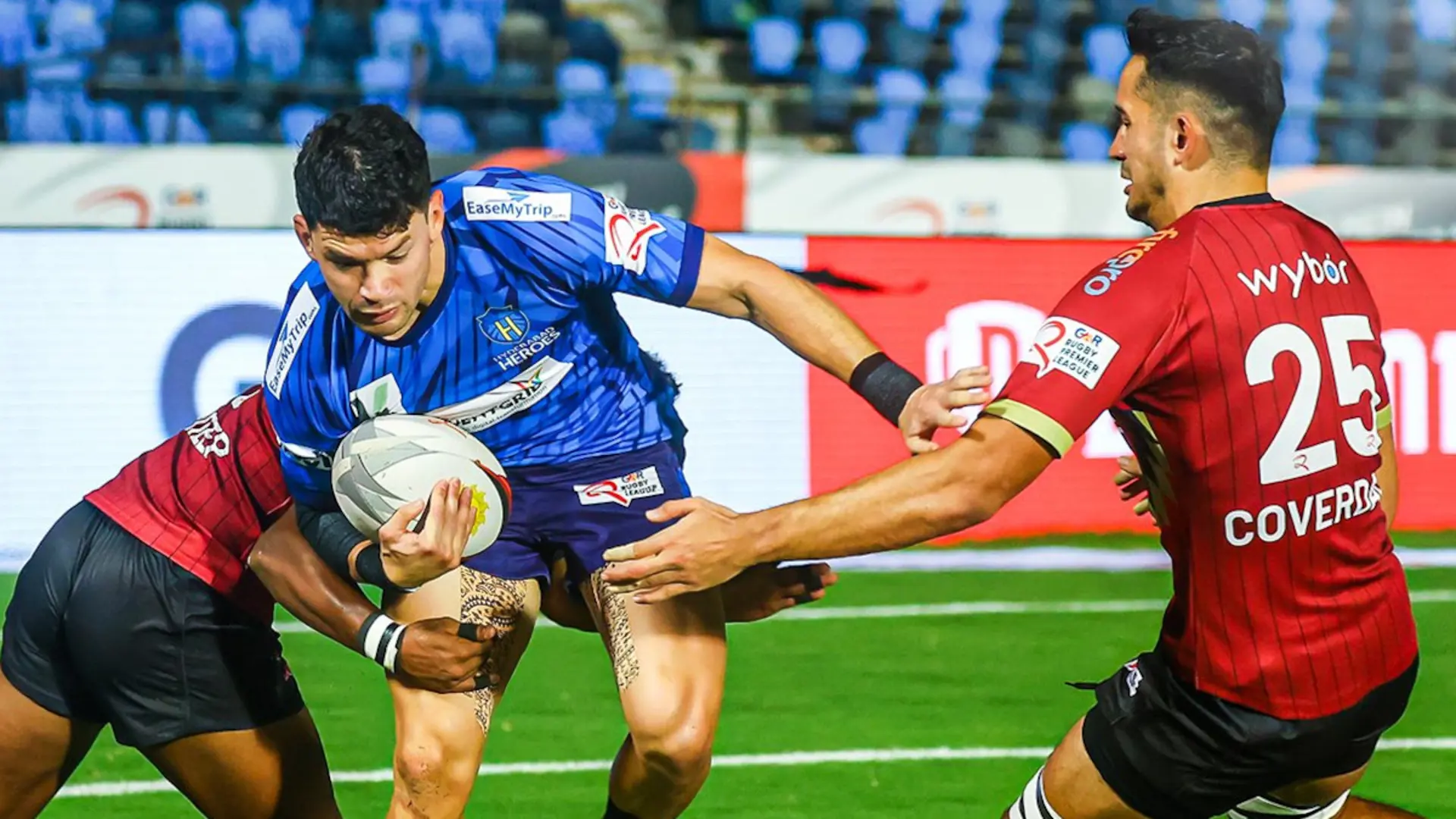Rugby Premier League looks to revive Indian game through sevens league

Nearly 150 years after the demise of Calcutta Football Club resulted in the creation of rugby's oldest international trophy, a new sevens league was launched this month with the aim of reviving the gladiatorial sport in India.
The Rugby Premier League (RPL) has recruited top internationals from the World Sevens circuit to play alongside locals in six franchises under broadcast-friendly rule variations.
Organisers not only want to lead a revival of local rugby to the extent that India one day qualifies for the Olympics, but believe they can help revolutionise the future of the game worldwide.
"Rugby in India is not so popular and not because it's not played, it's played in more than 250 districts in India and there's a lot of talent pool available, but because people have not seen it," Satyam Trivedi, chief executive of co-organisers GMR Sports, told Reuters.
"It has not been commercialised, originally or globally. It is a very aspirational sport. In countries like the UK, Australia, New Zealand, it's a private schoolboy sport, which is not how it is seen in India.
"I'm sure with the league getting commercials, going on broadcast, some of the finest athletes of the world coming and participating, the audiences will see it and the sport will catch up."
The launch of the RPL comes at a time when sevens, which took off after its inclusion for the 2016 Olympics in Brazil, is facing challenges.
Financial pressures have led to cutbacks in some programmes, with Ireland ending its men's programme and Britain's men's and women's going part-time at the end of July.
World Rugby plans to introduce a three-division regular season in 2026, increasing the number of events to make the sport more cost-effective and competitive.
UNCERTAINTY
Unlike World Sevens tournaments, organised on national lines, each RPL squad features five top-level "marquee" players, five from India, and three more internationals dubbed "bridge" players.
Scott Curry, who played 321 times for New Zealand's All Blacks Sevens team and represents the Bengaluru Bravehearts in the RPL, believes the franchise model could be a peek into the sport's global future.
"The World Series has been changing a lot and there's a little bit of uncertainty there but to see something like this, a franchise league ... I think it could be the future of the game going forward for sure," Curry said.
"Having franchises where players from all over the world can come and play together along with local Indian players is really exciting for our sport."
Rugby India is another co-organiser of the RPL and its President Rahul Bose senses a major opportunity to get the eyes of 1.4 billion people on the game through the country's potential bid for the 2036 Summer Olympics.
"After Indian hockey, we want to be the second team, and by that time (2036), it'll be 80 years that there's no other team that's gone to the Olympics from India," Bose said.
"I'm not counting cricket, which is coming into the Olympics through a different route. But certainly when it comes to sports that have 100-plus nations playing it, like soccer and rugby, we've trained our eyes on that."
Spaniard Manuel Moreno, who was named in the World Sevens series dream team last season and has been playing for the Hyderabad Heroes in the RPL, thinks India might not have to wait as long as 2036 given the Olympics has regional qualifiers.
"It's a long way to try to compete with the best teams in the world ... the World Rugby Series, maybe is too far from now but maybe (India can qualify) for the Games as qualification is from the continent," Moreno said.
"They (India) can do it in the next Olympic cycle. There are only two or three big teams in Asia. So I think they have a real possibility to be in the Los Angeles Games in 2028."
Moreno might be being a little optimistic given India's men finished seventh in Asian qualifying for the 2024 Paris Olympics, while the women were sixth.
Still, playing with the likes of Curry and Moreno can only help accelerate the development of local players and it might not be too long before Indian rugby is known for more than just the source of the trophy that England and Scotland play for every year.
Advertisement